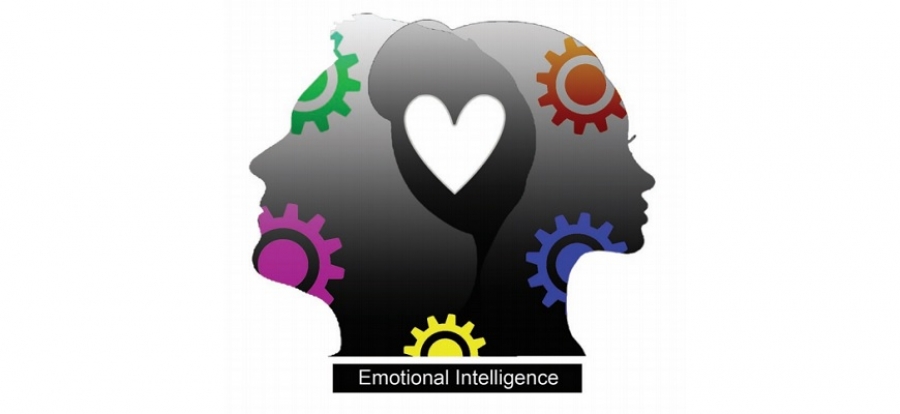In Emotional Intelligence: Why it can matter more than IQ (1996), Daniel Goleman states that the key areas of emotional intelligence are:
1. Social awareness
2. Social skills
3. Self-management
4. Self-awareness
1. Social awareness
It’s in the little details, even the tone of voice. I admire those leaders who are aware of this and do everything they can to ensure their colleagues feel trusted, respected and, most importantly, valued.
The (extremely positive) line I’ve heard a few times recently is: “Come and see me, but don’t worry, you are not in trouble.” The reason I think the latter part of this sentence is important is because the“Quietness in particular is a telling sign for me.” majority of conscientious educators immediately think to themselves, “Oh, what have I done wrong?” This often plays on their mind, leaving them unable to concentrate on other tasks in hand.
This for me is a step forward from previous ‘calls to the head’, as it is showing that that SLT and heads of school are beginning to have a deeper understanding of the emotional impact of saying “Come and see me!”
Understanding the heart and the minds of your colleagues is invaluable. You need to understand how others operate, be able to see the signs of when they are tired, quiet and feeling overburdened. Quietness in particular is a telling sign for me, because when people feel they have lost their voice, or are so tired they are not interacting with others, this is a concern. Having said that, some people prefer the quietness of their classroom and enjoy spending time by themselves, I do this a lot throughout the school day, so each to their own.
However, when you know someone who is normally quite talkative become quiet overtime, you need to investigate in a supportive way. It may be they are trying to hold everything together and feel weak by asking for support. Judge the situation and provide subtle support. Knowing your colleagues well means you know when to praise them, when to allow them to take risks, and when they’re out of their comfort zone and need support taking the leap.
2. Social skills
So, attention to detail. Your tone of voice is important, the way you actively listen is vital, how and when you filter information to colleagues is key. However, for me the most essential ‘awareness’ tool is knowing that we (SLT, heads) don’t always know what is happening in a person’s life. People (especially teachers) are very convincing when putting on a ‘front’. The awareness of how ‘words’ can ‘make or break’ a situation is something ALL leaders should be mindful about. People remember ‘words’, they become ingrained in a person’s memory, both positive and negative.
So choose your words wisely. You honestly don’t know whether a person is hanging on by their fingertips, or if an uncontrollable situation is taking place in their personal life. Always always choose to be kind.
This doesn’t mean you are making excuses for that person - far from it. It means you are supporting them and making them feel accepted, able to complete given tasks and workload, rather than putting them on (to put in bluntly) a knife edge.
3. Self-management
Leaders who are emotionally intelligent are in tune with themselves, and know when to stop and take time out. This has taken me four years to put in place, but when I need ‘time out’ I go to the gym, or go on a long walk, to re-energise. I know the signs of when I need to stop and take a breather. This is easier said than done, but it is a necessity.
Another self-management tool is being able to trust others to get the job done. I am very much a person that likes to take on lots of work, and also enjoys getting the work done myself. At times, I can be a little bit of a perfectionist. I’ve learnt that other colleagues can manage tasks excellently, and that they don’t always need my input, so I have learnt to ‘trust’ the process and colleagues to complete tasks. It’s about knowing their skills base, allowing them to take a project on, that they are passionate about. Again, this is down to knowing your colleagues well.
Knowing your own mind space and when it is becoming too crowded, is also fundamental. Saying ‘no’ to extra responsibilities, when you know you are not ready for them, or have too many other roles ongoing, is vital. You are being emotionally intelligent by saying ‘no’. Only YOU know how many headaches it may give you. Therefore, always go with gut instinct, before taking on an extra responsibility.
4. Self-awareness
You also need to know yourself well and understand your ‘buttons’, so to speak. Being self-aware is key, to ensure you don’t burn out. For me, and many other leaders, having a strong and proactive emotional intelligence breaks down so many “I’ve learnt that other colleagues can manage tasks excellently.”barriers and allows you to read into so many situations at a deeper level. This provides a higher response and engagement from colleagues. Colleagues know and understand that you have their backs, but also know that you will challenge them, when they need to be pushed outside their comfort zone, in equal measures.
From experience of being a middle leader, head of Science across our Academy schools and moving recently to SLT, I have had a positive response from people I work with. This is because as well as knowing them as colleagues, I understand them as people and most importantly, they know me.
They know that I wouldn’t ask for something I haven’t already trialled and completed myself, they know that I am firm but fair, and they know what is expected of them. I have high expectations - always - but with that I have kindness and understanding. As humans, in a demanding and often fast-paced career, empathy, realism and attention to detail is core.
Want to receive cutting-edge insights from leading educators each week? Sign up to our Community Update and be part of the action!


















